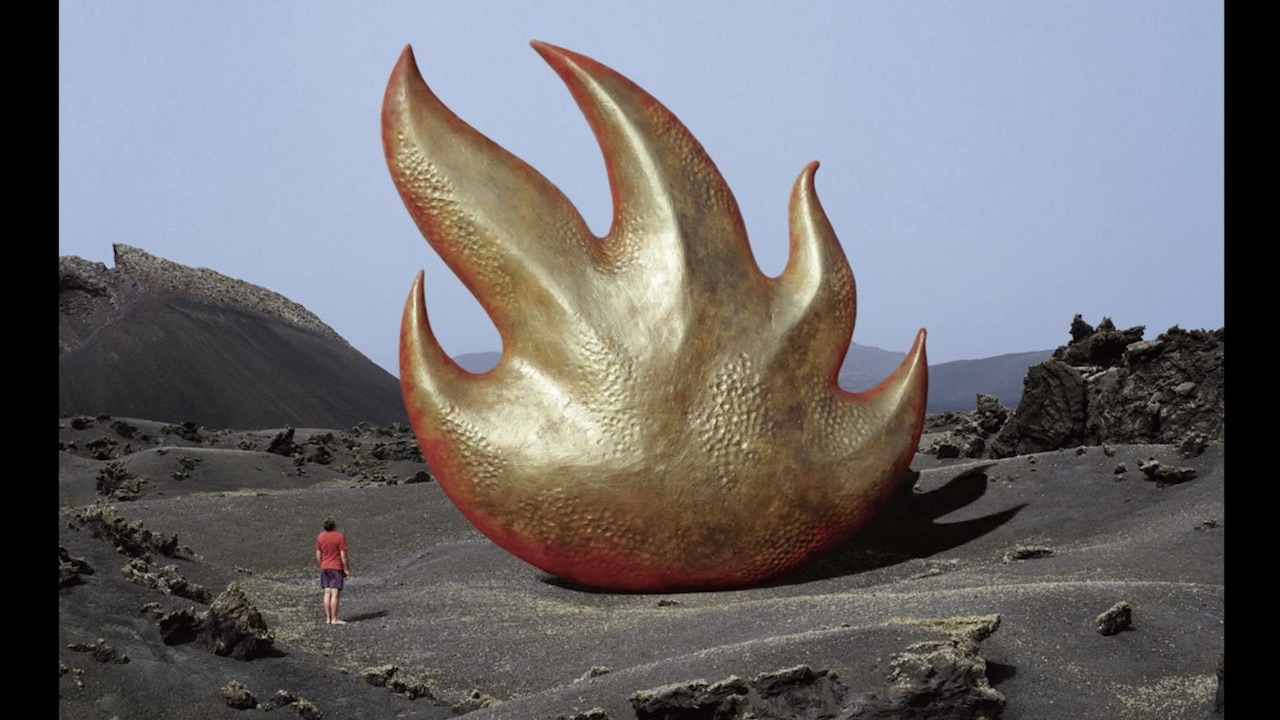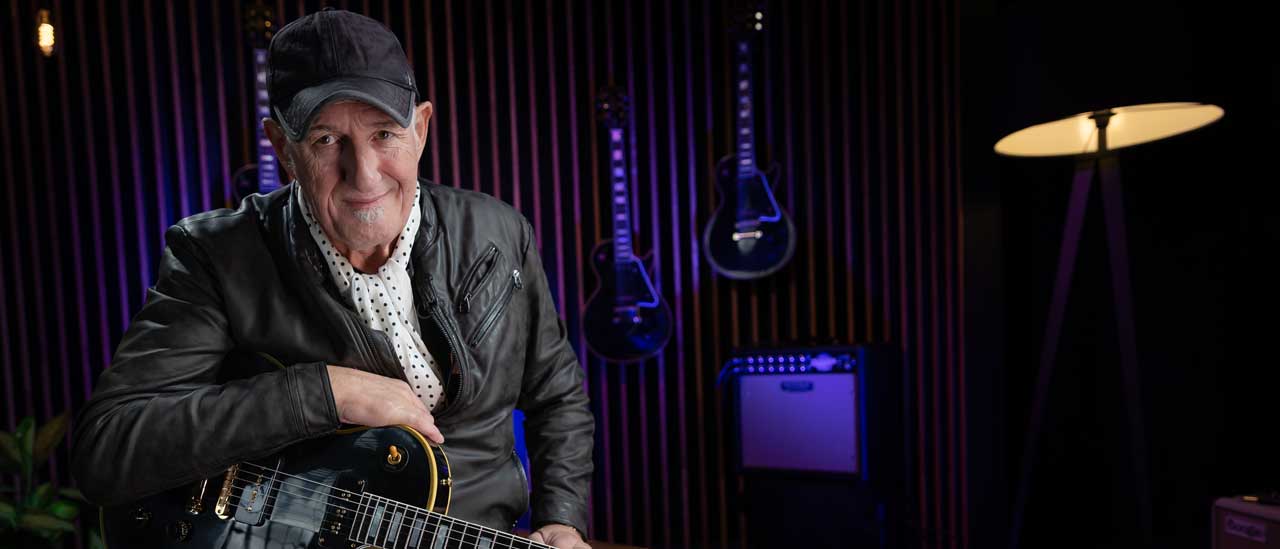Every song on Audioslave's debut album ranked in order of greatness
Audioslave's debut album brought the face of Soundgarden and Rage Against The Machine's engine room roaring into the 21st century. Here's our ranking of its 14 songs, from the mediocre to the magnificent

The singer of Soundgarden fronting Rage Against The Machine. That was the basic, and hugely appealing, pitch for millennial supergroup Audioslave, and while it effectively describes the merging of colossal talents - both bands having conquered the world during the previous decade - it still manages to fall short in describing the magic the group tapped into in its brief lifespan.
With supersize riffs in the vein of '70s rock gods Led Zeppelin, Audioslave could easily have fallen into a comfortable niche of being the go-to party band. But Tom Morello, Tim Commerford and Brad Wilk hadn't spent a decade politicising the world for nothing, and brought their firebrand sensibilities to their new group, even if they did slip rebellious sentiment and thinly-veiled presidential criticims in amidst the kind of tunes you could fill stadiums with.
Released on November 18 2002, Audioslave's self-titled debut was the introduction to one of the few supergroups in rock history worth every bit of the hype, and monster singles Cochise, Show Me How To Live and Like A Stone helped it sail into the top 10 of the US Billboard 200 and secure a Top 20 chart placing in the UK.
In tribute to this modern rock classic, we've ranked every song in order of greatness.

14. Light My Way
Audioslave go back to basics on the home stretch of their debut. After more experimental turns in Bring 'Em Back Alive and Hypnotize, Light My Way feels a little too pedestrian, a little too safe. Granted, that still means it trounces most other bare-bones rock groups, but it doesn't touch the heights the majority of the record reaches.
13. The Last Remaining Light
A final ballad before they head off into the night, Audioslave chase Getaway Car with another softer song in The Last Remaining Light. Played at a glacial pace, the track feels agonisingly drawn out, particularly given the preceding hour's worth of music. Still, few voices are suited better to ballads than Chris Cornell's, and his golden pipes ensure The Last Remaining Light conjures the magic for one last spin of the wheels.
The latest news, features and interviews direct to your inbox, from the global home of alternative music.
12. Set It Off
Set It Off is by no means a bad song, and readily follows the same formula that makes the likes of Gasoline, What You Are and Cochise so powerful. The issue here is that, stacked against tracks - and coming after the pace-change of Like A Stone - it feels just a little too similar to its preceding tracks for its own good.
The riffs are still explosive and there's some brilliant funk interplay between Wilk and Commerford, but ultimately Set It Off just doesn't manage to make itself feel as incendiary as the other hard-hitting rock tracks, and comes across as a stop-gap between the album's two big ballads.
11. Getaway Car
Ending on a softer note makes perfect sense, given that Audioslave kicks off with one of the hardest rock bangers of the 21st century. If most of the band's ballads are cast in the Soundgarden mould, Getaway Car feels like something that could have happily sat on a solo Chris Cornell record, his voice thrust into the spotlight over gentle, meandering melodies.
By and large, Audioslave is a Big Rock Record, coming just ahead of the likes of The White Stripes' Elephant, The Darkness' Permission To Land and Wolfmother's self-titled debut. But even as it revived the notion of Massive Riffs and Bigger Choruses being a good thing, Audioslave finds space to chuck other flavours into the mix.
10. Bring 'Em Back Alive
Word has it that it was Soundgarden's Slaves & Bulldozers that endeared Chris Cornell to a freshly singer-less Rage Against The Machine. Listening to the sludgy pacing of Bring 'Em Back Alive, we can absolute buy it. Shadows of both RATM and Soundgarden can be found throughout Audioslave, but generally speaking the scales weigh heavier in the Rage camp.
Bring 'Em Back Alive is a tantalising vision of the other side of that coin, its lumbering riff throwing right back to Black Sabbath then given added rocket fuel in the choruses. Interestingly, Cornell's vocal takes on the same otherworldly tones as Ozzy Osbourne's in Planet Caravan and Solitude, making this feel like the Sabbathy counterpoint to the majority Zeppelin influence that shines throughout.
9. Exploder
In balance, Exploder fulfils the same role as Set It Off, bringing the pace of Audioslave back up after a detour through ballad territory. But Exploder benefits by exercising more restraint in its pacing, winding up in the verses and then exploding during the chorus.
It doesn't hurt that the song is among the funkiest in Audioslave's canon, Commerford's strutting basslines taking centre stage while Morello widdles high notes above. Lines like "If you're free, you'll never see the walls" feel like a clever bit of defiance to the 'no politics' rule, too.
8. Gasoline
Chunky, stomping riffs might be the foundation upon which most Audioslave songs were built, but much can also be said of Morello's tendency to play around with guitar effects. Disclaimers on each Audioslave record proclaimed that all music was played on guitar, bass, drums and vocals, Morello clearly revelling in his ability to wring otherworldly sounds out of his instrument.
Gasoline shows this off perfectly; yes the stadium rock riffs are still right up front - they seldom slip in the first Audioslave record - but Morello adds colour to the song through fluttering guitars and retro-futurist notes that perfectly underpin the whole idea behind the band; doing something retro-sounding in a fresh and vibrant way.
7. I Am The Highway
After blowing the doors open at the start of the record, the second half of Audioslave is dedicated to exploring the band's softer, more balladic side. Many a rock band has fallen foul of middle-of-the-road insipidness over the past 20 years, but Audioslave never had much worry in those stakes, the talent of its personnel ensuring there was always a spark of excitement and explosive energy to be found.
Compared to the introspective Shadow On The Sun or Like A Stone, I Am The Highway stands out for maintaining a sense of melancholy throughout, the lack of explosive release feeling refreshing by contrast.
6. Hypnotize
Undoubtedly the weirdest track on Audioslave, Hypnotize feels more like Audioslave taking on Moby or an off-cut of something the Transplants would have written. Commerford's funky basslines are fed into a dance beat and Cornell switches into an ethereal presence, leaving Morello as mere window dressing while Brad Wilk clatters away on the kit.
Suprisingly, it works. In a record that generally only has two gears, Hypnotize is a refreshing overhaul of the template, chucking out everything we know about the project to craft an addictive and interesting little number.
5. Shadow On The Sun
Audioslave ballads always thrived on the fact that at any moment, even the gentlest and most delicate song could go supernova. Shadow On The Sun is a prime example of this, its nuanced verses building to cathartic explosions that offer a gratifying sense of release. Cornell's range is put on full display here, going from gentle croon to rock god howl.
With its mentions of burdens and sun imagery, lyrically Shadow On The Sun feels like an update on Soundgarden's Burden In My Hand, a similar reflection on the temporary nature of happiness and darkness that can blight even the brightest entity.
4. What You Are
Politics don't figure on the first Audioslave record, Morello reportedly agreeing to not write any political material for the new band when Cornell first signed on. Even so, there is a defiant edge that shines through across the record, with What You Are in particular bristling with "fuck you" energy.
Written about getting out of toxic relationships, What You Are is a throwback to the lyrical themes of Soundgarden songs like Pretty Noose, lines such as "When you asked for light I set myself on fire/if I go far away I know you'll find another slave" dripping with disdain as Cornell details the destructive power the song's subject holds over him. Much as Layne Staley could craft heartwrenching songs as much about addiction as love, it feels like Cornell's own battle with alcoholism around the album's writing and release fed into the song's desperate cry for freedom.
3. Show Me How To Live
If Cochise was all about putting the pedal to the metal and declaring spectacular war on the world, Show Me How To Live was a reminder that the singer had made his bones in groups that understood a thing or two about restraint and nuance. Such words seldom appeared in Rage's catalogue - after all, how revolutonary could a whisper truly be? - but on Show Me How To Live Cornell shows a fuller display of his vocal range, smooth verses giving way to the colossal shriek that punctuated Cochise so well.
The third single from the album, Show Me How To Live reached No. 67 on the US Billboard Hot 100. The song's defiant music video - showing an epic car chase between Cornell and scores of police, cut with cult 1971 movie Vanishing Point - tapped into the rebellious and playful spirit of the band. Though things weren't always happy in the Audioslave camp, at this point they were clearly having a gas - Morello's shimmering sci-fi guitars add a nice experimental touch to the song, while Cornell's strange vocal effect at the song's end were achieved by the singer literally tapping his throat in different positions to get different pitches.
2. Like A Stone
Chris Cornell's rap skills might be ropey at best, but when it comes to vocal powerhouses few could touch the icon, and Like A Stone is exactly the kind of tune that could never existed on any Rage Against The Machine record. While still powered by the same motor that makes the rest of Audioslave so powerful and bombastic, Like A Stone shows a softer and more emotive side to the band.
The band's second single, Like A Stone also became their biggest hit when it reached number 31 of the US Billboard Hot 100, also topping the Modern Rock Tracks and Mainstream Rock charts in the US. Proof that showing a little tenderness goes a long way, Like A Stone readily justifying its position as the band's most streamed song with over 458 million streams on Spotify alone.
1. Cochise
Audioslave's explosive opening track also served as the band's introduction to the world when it was released as the lead single on October 15, 2002. It's slow-build intro is a masterclass in excitable foreboding, a cinematic reveal of the band worthy of a Hollywood blockbuster leading in to one of the most thrilling rock'n'roll explosions on the planet.
In one fell swoop, Morello, Commerford and Wilk proved that they didn't need the lightning energy of Zach De La Roche to put the world on notice, and that's before Chris Cornell chimes in with yet more proof that he may just have been the greatest voice of his generation.
Storming the gates from start to finish, Cochise is without a doubt Audioslave's defining anthem, a defiant resurrection from a group of musicians the world was about ready to write off. Like A Stone might have the streams, but Cochise is the kind of shit-kicking anthem every band dreams about.
Staff writer for Metal Hammer, Rich has never met a feature he didn't fancy, which is just as well when it comes to covering everything rock, punk and metal for both print and online, be it legendary events like Rock In Rio or Clash Of The Titans or seeking out exciting new bands like Nine Treasures, Jinjer and Sleep Token.

